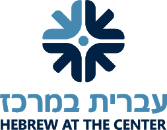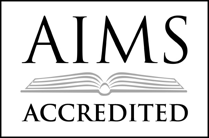Perspectives on Globalization: A Fourth Grade Election Project Update
October 20, 2016 by
As part of the school-wide Election Project, Fourth Graders are exploring one of the most challenging issues of our day, globalization. The topic was selected because it interconnects with the students’ year-long study of world geography and culture.
Fourth Grade students have had the opportunity to engage with experts in the field who are highlighting different lenses through which the students can think about globalization. JPDS-NC parent Ilissa Shefferman, an International Trade Policy Analyst for the Department of Commerce, taught students about the ways that countries can work together to meet a variety of needs when trading by inviting them to participate in a trade simulation exercise. JPDS-NC parent Maura McCarthy, Director of Digital Content for the World Wildlife Fund, showed students how countries work together to protect endangered animals and their habitats through the WWF. JPDS-NC parent Adam Szubin, Acting Under Secretary for Terrorism and Financial Intelligence for the Department of Treasury, shared with students the potential and limitations of diplomacy, using the negotiation of the Iran nuclear deal as an example. And JPDS-NC alumni Max Manasevit (’02) spoke with students about his two years in the Peace Corps in Mongolia. Coming up will be JPDS-NC parent Beth Tritter, Vice President of the Department of Policy and Evaluation for the Millennium Challenge Corporation, who will discuss foreign aid and global assistance; and JPDS-NC parent Brad Brooks, Policy Director for the Enough Project, who will explore the role globalization plays in mining in Zimbabwe.
In order to provide students with the opportunity to dig deeper into this vast and complex topic, teachers divided the topic of globalization into three sub-topics (one for each homeroom): importing, exporting, and international organizations. Students are delving into the subject through reading articles, visits with expert speakers, and classroom discussions. Throughout, students have been reflecting about the many pros and cons of globalization and the importance of knowing about all of them. One Fourth Grader was surprised by the many pros and cons of globalization. Another said, “There are good things and bad things about globalization, but through it, each country can get what it needs, we hope.” And yet another said that this is a “good learning experience” because we are appreciating the fact that not everywhere in the world is the same.
This week, all three of the Fourth Grade classes at JPDS-NC visited different schools in the region to present their Election Project learning and to hear the opinions of other area Fourth Graders. The Trailblazers Class went to the Lowell School in Washington D.C.; the Explorers Class went to the Landon School in Bethesda; and the Navigators Class went to E.L. Haynes Public Charter School in Washington D.C. During the school visits, JPDS-NC students introduced the election project and delved into different aspects of globalization. Each class presented a different case study such as where our clothes are imported from, smartphone manufacturing, and hurricane relief aid to Haiti, and then discussed the costs and benefits of globalization. Our students then shared a “Tug-of-War” thinking routine they had used at JPDS-NC to weigh the merits of the various cost and benefit arguments. This was followed by a Chalk Talk activity that enabled the students at the other schools to record their thoughts on the topic of globalization and pose a handful of questions that had emerged from the joint work in their classrooms.
Whether looking at where their own clothing is made, pretending to represent different countries with goods to export and import in a trade negotiation, or walking through the stages of diplomacy, the Fourth Graders say they’ve been having fun learning about many of the aspects of globalization. As one student noted, “They [expert speakers] are really helping us learn, and we like how some of them are using exercises and analogies… all our learning has been participatory.” Another student commented, “It’s fun to learn about globalization, to know how ordinary things can be related to so many other things around the world.” Yet another appreciated that their guest speakers were teaching them about “very specific things,” because that helps them think about the issue better.






